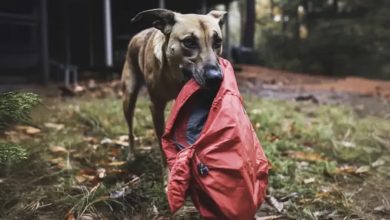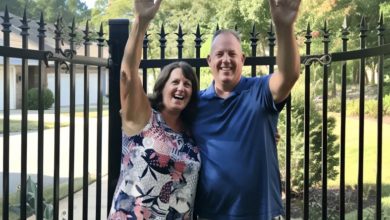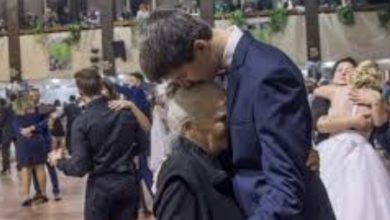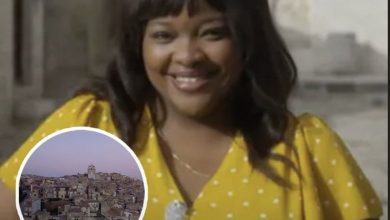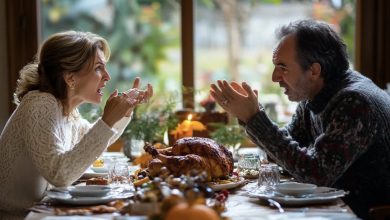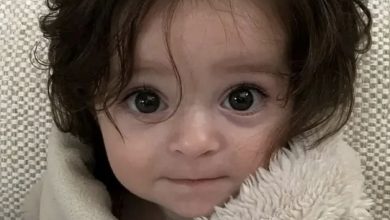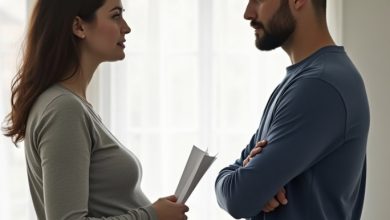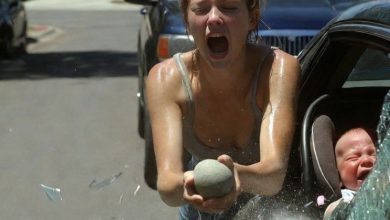They Feared Us as ‘Bikers’—Until We Were the Only Heroes at the Scene
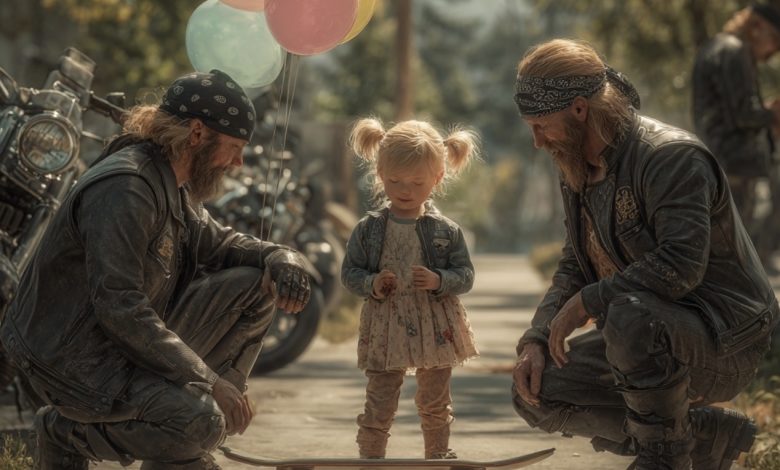
I never expected a simple act of kindness would teach me and an entire neighborhood a lesson about fear and judgment. My name is Ray Donovan—most folks call me “Pastor” because I used to preach, but these days I spend more time on my Harley than in the pulpit. I’m sixty-eight now, a grandfather proud of my three daughters and five grandchildren, and I’ve been riding for over fifty years. My leather vest is covered in patches—memories of thousand-mile trips and friend-ships forged on the open road—yet all too often people see only the beard and the black jacket, not the man inside.
That afternoon at the grocery store was like any other. I’d picked up a red balloon for my granddaughter’s birthday. It slipped from my hand as I bent down to grab a packet of gum I’d dropped. I reached out, ready to catch it, when a woman burst from the door, grabbed her little girl, and backed away.
“Bloody bikers!” she spat. She pulled her daughter so close I thought her bones might crack. “Someone ought to keep you out of decent neighborhoods.”
I froze, balloon in hand. The little girl peered over her mother’s arm with wide, frightened eyes. I opened my mouth to say, “I’m just a grandfather, I swear,” but she turned and hustled her away. I stood in the doorway, stunned, as they vanished into the store. Her final glance—confused, learning fear—haunted me long after.
A few days later, I was riding home from a memorial run for our brother Jack, who lost his fight to Agent Orange. My friends Pete and Denny and I had taken the city streets instead of the interstate—our old bones couldn’t handle the highway’s relentless buzz. That’s when we saw her again.
She stood at a busy intersection, balloons wrapped around her ankles, tears in her eyes, and blood seeping from a scrape on her knee. Traffic roared past. No one stopped. Pedestrians kept their distance, phones in hand, ready to record the “scary bikers” bullying a child.
I gave Pete a nod. He pulled alongside her, gently untangling the balloons. Denny rummaged in his saddlebag for a clean bandana to dress her cut. I made my way through the gathering crowd, careful not to startle anyone. Even so, people edged away—giving us the same wary looks they gave at the store.
“Hey, sweetheart,” I said softly, kneeling beside her. “I’m Ray. You okay?”
She blinked up at me. “You’re the balloon man,” she whispered. Then she hiccupped, tears falling faster. “I lost my mommy.”
Denny held out the bandana. “Let’s patch you up, okay?” he said kindly.
She nodded and offered me a small, hoarse sob. “My name’s Lily.”
Jack, standing guard like a silent giant, scanned the crowd. “Ray, that store down the road—there’s a big teddy bear out front. That’s where her mom was.”
Before I could reply, a panicked shout rose from behind us: “Lily!” A familiar voice cut through the noise. That same mother ran toward us over the crosswalk, her face pale, fear making her wild.
“Mommy!” Lily sobbed, rushing into her arms.
The woman froze when she saw us: three leather-clad men surrounding her bleeding child. And then she saw Lily wrapped in our care—balloons safely sorted, knee bandaged, tears drying in her hair.
“I’m so sorry!” she gasped. “I turned away for just a moment.”
I rose slowly. “You’re her mom?” I asked quietly, meeting her eyes.
She nodded, voice catching. “Yes. I… I’m Rebecca. Thank you. I saw bikers and panicked.”
Pete handed her Lily’s little wooden sailboat, the one the child had been carrying. “Your grandpa made this for her,” Lily said, clutching it protectively.
“Your grandpa watches you from the clouds,” Rebecca whispered, tears glistening.
I placed a gentle hand on her shoulder. “I’m just glad she’s safe.”
Around us, phones still hovered, but something had shifted. Bystanders relaxed. A few offered water or blankets. An elderly man stepped forward to help Rebecca hold Lily. The initial shock melted into something warmer.
At Rebecca’s invitation, we went with them to a nearby café. Lily sipped hot chocolate while Rebecca introduced us properly. We learned that Rebecca’s father—the boat’s craftsman—had passed away that spring. She’d brought Lily to town for balloons and treats, never dreaming one would float away, one glance would lead to terror, and another to rescue by the very men she feared.
We chatted softly: Pete shared stories of raising five daughters, Denny laughed about his twelve grandchildren, and I spoke of Sunday storytimes with mine. Rebecca listened, astonished, seeing our patched backsides not as threats but as proof of lives lived in devotion to family and community.
When Rebecca asked if I would take a photo of her and Lily with us, I agreed. We huddled around Lily, her smile wide now, and Rebecca snapped a picture that captured the moment—three “dangerous bikers” as gentle guardians.
Two weeks later, Lily invited us to her sixth-birthday party at the community pond. Fifteen of us rode over on our Harleys, engines rumbling like thunder. Parents watched warily, then broke into smiles when Lily ran out to meet us, balloons in hand, her wooden boat ready for its maiden voyage.
Rebecca’s family gathered to greet us. Her husband, a shy man with gentle eyes, shook hands with Pete and Denny. They marvelled at our motorcycles, asked about our rides, and told stories of their own childhood bikes.
That day, Lily’s grandpa—an elderly man with trembling hands—arrived and thanked me. He, too, had once ridden a Triumph back in 1968 but traded two wheels for a station wagon when his sons came along. He praised our kindness and confessed he’d almost stopped riding entirely.
I clapped him on the back. “Never too late for a ride,” I said. He laughed softly, admitting his wife might object.
“You bring her next time,” I told him. “We’ve got some lady riders who’d welcome her.”
He nodded, eyes bright. “Maybe I will.”
As the balloons lifted from Lily’s little boat, riding off into the afternoon sun, I realized how quick people are to judge. A leather vest and a beard had once turned a mother’s fear into danger. But when real need arose, those same outfits became badges of compassion.
In the weeks that followed, Rebecca and I stayed in touch. She invited my wife and me to tea. Lily sent hand-drawn pictures of boats and balloons. Children at school pointed at me and whispered—no longer about how scary bikers can be, but about how they helped their classmate when she needed it most.
People see what they want to see… until actions rewrite their assumptions. And in that rewriting, we found new friends, healed old wounds, and proved that sometimes, the most feared strangers can become the most trusted allies—especially when they’re the only ones brave enough to stop and help.

